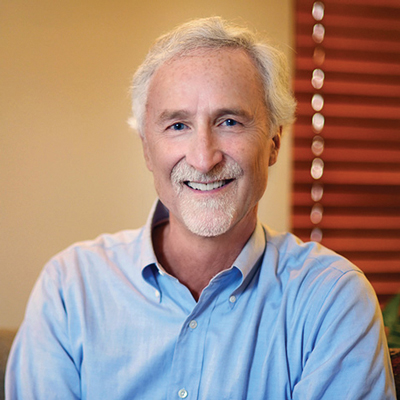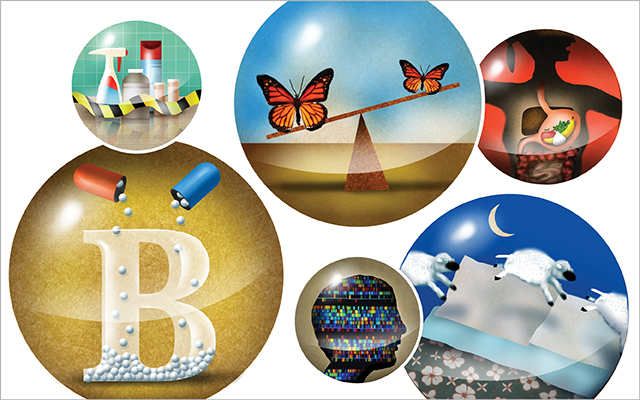I’m a psychiatrist, but I’m not a big fan of psychiatric diagnoses. We don’t have good blood tests or readily accessible brain scans to aid those decisions. This leaves us to consult lists of symptoms that don’t tell the whole story, and I believe that far more people are diagnosed with clinical depression than really need to be.
One driving force is the health-insurance industry: Insurers will not reimburse physicians unless they provide patients with a specific medical diagnosis. This readily leads to overdiagnosis.
The second factor is the oversimplification of the screening process. One depression test features nine questions that patients can answer in a couple of minutes. If someone scores high enough, they are typically labeled with depression and often prescribed a pharmaceutical antidepressant.
There are real problems with overdiagnosis. First, many disorders that look like depression are not, and a rapid diagnosis leaves other explanations unexplored. I believe roughly 80 percent of people diagnosed with depression actually suffer from a stress-related adjustment disorder.
What’s more, antidepressants are not a long-term solution. If someone doesn’t also learn new skills to deal with stress, depressive symptoms are likely to return when the meds are stopped — or stop working.
Finally, there’s a diagnostic feedback loop. Tests may inquire about sleep, appetite, or energy, while many antidepressants cause sleep issues, increased appetite, and fatigue. The quiz would interpret these side effects as ongoing depression, which often leads to more medication, and more side effects.
Depression Types and a New Approach
Because we take an integrative approach at my clinic, we view underlying conditions from a number of angles, with a strong focus on nutrition and lifestyle.
We have also noticed three subtypes in people who appear depressed: mostly anxious, mostly agitated, or mostly sluggish. People may present symptoms from two or three of the subtypes, but they tend to feature a predominant pattern, and all seem to respond well to a comprehensive approach that addresses stress tolerance. These are my basic treatment strategies for each subtype.
Anxious Depression
This type is prone to excessive worry and feeling scattered and nervous. Our treatment goal is to help them stabilize and become more grounded through food, supplements, and lifestyle changes. I typically prescribe the following.
Nutritional supplements:
- The amino acid 5-HTP
- Activated B vitamins
- Zinc
- Magnesium L-threonate
Food and lifestyle:
- Plenty of healthy carbs and low to moderate amounts of fat and protein.
- About 30 to 45 minutes of gentle, repetitive cardio exercise, such as walking or yoga, each day.
- Quality sleep as well as healthy rituals and routines.
Mind–body practice:
- Five to 10 minutes practicing some type of breath awareness or mindfulness meditation twice a day.
Agitated Depression
These types suffer from hot tempers; their fuses can be extremely short. Quick to experience irritation and anger, even rage, they also tend to sleep fitfully, waking in the night to ruminate. They benefit most from a cooling, anti-inflammatory approach to treatment.
Nutritional supplements:
- Inositol
- 5-HTP
- L-theanine
- CBD to promote deeper sleep
Food and lifestyle:
- A soothing diet higher in brain-healthy fats with lower amounts of protein.
- Plenty of moderate intensity exercise done in water or during the cooler hours of the day.
Mind–body practice:
- A compassion or lovingkindness meditation for 15 to 20 minutes daily.
Sluggish Depression
These types tend to most closely resemble classic depression. Our treatment approach is to help gently stimulate more energy and motivation.
Nutritional supplements:
- 5-HTP
- L-tyrosine
- Activated B vitamins
Food and lifestyle:
- An energizing diet with plenty of lean, healthy proteins and fewer fats and carbs.
- Daily exercise, including high-intensity interval training (HIIT) two to three days per week.
- Limit sleep to seven to eight hours per night.
- Use bright light first thing in the morning to stabilize biorhythms.
Mind–body practice:
- Qigong or a shaking practice to elevate energy.
This article originally appeared as “Overdiagnosed?” in the October 2021 issue of Experience Life.





This Post Has 0 Comments